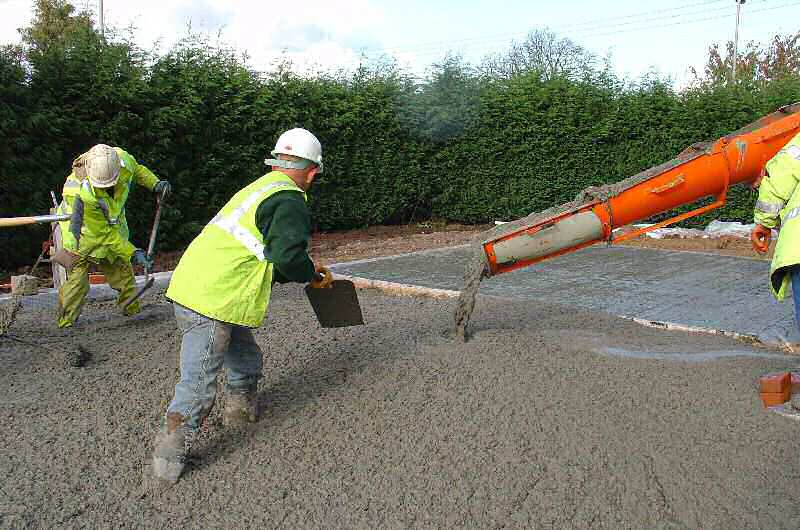How to Pour a Concrete Floor

Pouring a concrete floor is not only economical but also long lasting. It is not affected by environmental changes. You can enhance its look of the concrete floor by adding patterns and designs. Pouring concrete floors are also better as compared to carpeting. Carpet flooring have chances of carrying dust mites. Furthermore, it is a good alternative for people who suffers allergy from carpeting.
Things Required:
– Groover or Saw Garden Hose
– 2*4 for levelling and 2*8 for Tampering
– Rubber Boots
– Two bevelled Clapboards
– Motor Oil
– Magnesium Concrete Rake
Instructions
-
1
Preparation
First of all you need to prepare the area where you will pour the concrete floor. You need to select the location first and then lightly spray using the gardening hose or any watering utensil. After spraying, you are ready for pouring the concrete floor. The area where you have poured concrete is called ‘the form’. -
2
Walk on the concrete floor
After pouring the concrete, you need to make sure that you poured concrete at every place. You should check thoroughly by looking at the edges and around the perimeter. In order to check the area properly you can wear rubber boots or tamper for wide area. In case you are looking a smaller area, 2 by 4 can be used. -
3
Level the concrete
Next you need to level the concrete floor by using 2 by 4 or board. However, you need to make sure that concrete is placed tightly together. You can level a concrete floor by moving the tool back and forth on the particular area. -
4
Contraction or isolation joints
In order for concrete to expand and contract with the change of temperature, you can cut contraction or isolation joints. First you need to check that concrete can support well with use of 2 by 8 piece of wood. Then you need to make a contraction point with help of a groover or saw. These two components are used for making incision.The groover will be guided by 2 by 8 piece of wood. -
5
Apply clapboards
Next you need to apply two bevelled clapboards and lay them onto the concrete. Remember to add a coat of motor oil on the clapboards and apply a nail on the top board. You need to remove the board with nail when the concrete is about to settle. Leave the other board for isolation purposes.







